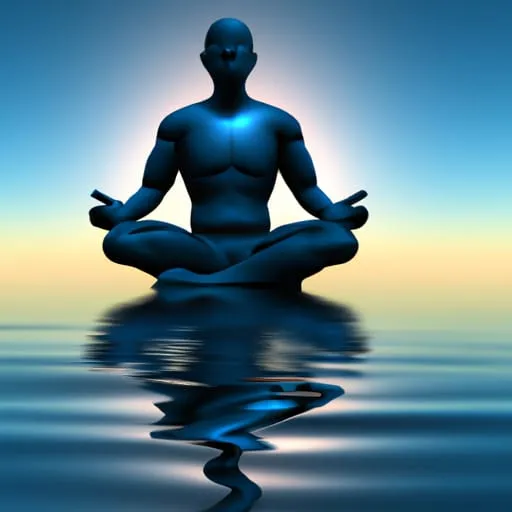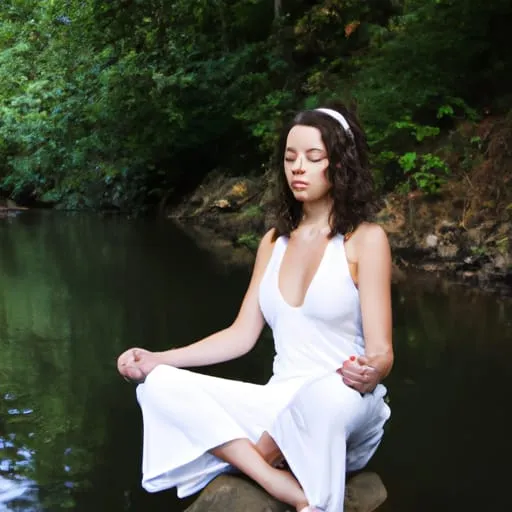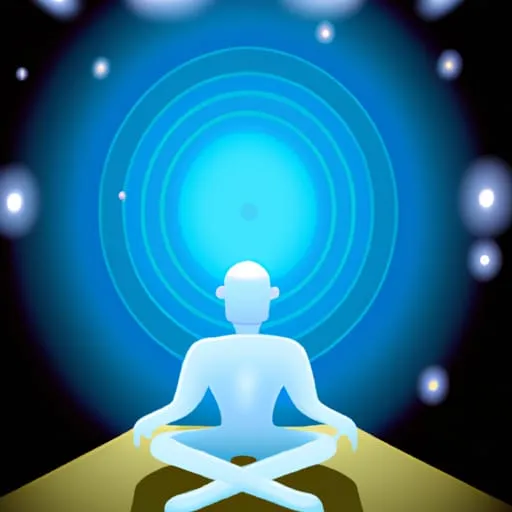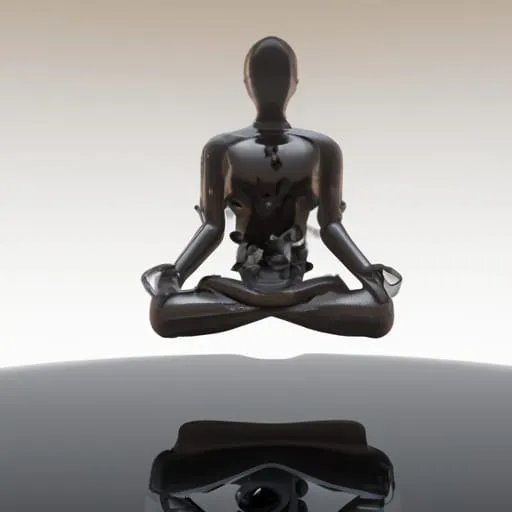
In the most basic sense, meditation could be said to be attending to what is actually happening for you here and now. There are many methods, techniques, schools and goals. The one thing I would like to emphasise is that meditating ‘for’ something is completely different to meditation in its proper sense. The main question is: what do you want out of it? This question, when answered honestly, should reveal important information about where your experience with meditation will lead.
There are many potential outcomes associated with meditation practice. It could be oriented toward health, longevity, stress-reduction, or it could be to experience blissful or altered states. It is important to note that when we are really interested in paying attention to what is, i.e. Truth, there is no outcome or goal associated with it. If you do want to meditate for some of the reasons specified above, there is really no problem with that, have away at it. All I want to make clear is that meditation is not a prescription for an outcome of how we or anyone else thinks things should be.
Over the past twenty years or so there has been a global shift toward mindfulness, which is really a kind of prescribed meditation practice. It holds onto limitation, and in fact issues from limitation – which isn’t to say that it is wrong, only that it is limited. It is encouraged by big business and educational institutions among others and touted as a way to boost inner health and overall productivity.
The reason it must be anchored in limitation is that groups with special interests such as maintaining productivity and satisfaction levels have an agenda.
Mindfulness has indeed been shown in the literature to have measurable benefits upon human well-being. A corporation or institution can achieve much by way of letting out the leash, however it simply cannot afford to throw out the baby with the bathwater. Progressive religions are also generally comfortable with mindfulness, just so long as it doesn’t push you over into questioning the main tenets of their ideology, in which case the leash is very firmly brought back in.

Corporations are happy to implement measures of mindfulness in the same capacity as they promote regular hand-washing, loud-shirt Wednesdays and sneezing into your elbow. Mindfulness is a prescribed form of limited meditative awareness that promotes mental and physical well-being. It makes for a more well-behaved, cohesive team environment, and staff are less apt to flip out and require stress leave.
Please recognise that you are not being blessed with the keys to the kingdom in this scenario.
At the end of the day, the ultimate interest is minimising loss and maximising profit. If you are the CEO of a multinational corporation, your investors and share-holders aren’t going to be terribly sympathetic to you waking up one morning having discovered that you are unconditionally connected with the source of all life and that your deepest being is as timeless, immortal spirit that feels no need to define itself through achieving material goals.
Meditation by contrast does not have a capped limit placed upon it. In fact, if there is any goal or outcome attached to it, you can say it isn’t really meditation in the true sense.
About twenty or so years ago, a group of Buddhist monks were visiting New Zealand. They visited a cathedral and remarked that it was a very holy place. They noted that there was a small chapel off to the side which was clearly labelled ‘Meditation Room’. Naturally, they asked if they could be permitted to use the room for – you guessed it – meditation.
The clergy responded kindly that no, they may not use the room because they didn’t think the kind of meditation that they were planning to do in the chapel would be appropriately Christian in nature. From that point on, the name ‘Meditation Room’ was abruptly changed to the name ‘Contemplation Room’, underscoring with wonderful irony the requirement of established authorities and institutions to maintain limitation, and therefore control.
This story perfectly encapsulates the issue surrounding meditation being held as something in abeyance to something else; some other hierarchy of values. True meditation cannot be this, because there can’t be a fixed itinerary on where you are being taken, otherwise it is not really meditation, it is something else.

So, the question arises, should we meditate? I find people struggle with this question, because it really can’t be prescribed. I personally don’t meditate, but that is because it would be redundant for me to set aside time to engage in awareness when I am committed to that every waking moment. The more interesting question would be, are you curious as to the fact that in spite of all the odds, you just happen to exist? Are you curious that perhaps one of the least possible things in the universe is directly observable within you and as you? If not, there isn’t much reason to advise someone to meditate. You may as well be asking them to join you in going to a movie they have no interest in seeing.
I’m not saying that having no interest in meditation is necessarily a terrible thing. It is admittedly a mystery to me why someone would not have their interest piqued by something that seems so profoundly fascinating as the existence of a universal force which is eternally self-aware, but there are reasons for everything. A simple life with no questions may be just as precious or pleasant to participate in as one filled with inquiry or reflection.
I can’t see why the lives of trees and plants shouldn’t be a perfectly valid form of existence, it’s just that the realm of the vegetable doesn’t share any overlap with my current interests and lifestyle.
As humans, the orientation of the intellect and the judging, perceiving mind is such a powerful and often heavy burden to bear. Meditation can certainly be said to provide perspective on the realm of the mind without turning itself inside out and trying ever unsuccessfully to come at itself from a non-intellectual angle. When minds engage in self-examination and analysis, all kinds of twists, ties, and knots are possible.
That is often what the majority of neurosis is, simply thought wrapping around itself again and again until there is an unbroken knot that results in an anxiety loop.
Meditation offers the promise of space and relief from this kind of insanity. Rather than reformulating new solutions within the structure of the known, it opens the doorway to the possibility of reviewing all of our mental content from a broader phenomenological space in which the contents of our inner lives seem relatively small by comparison.

Whilst meditation can provide the space for the entire spectrum of states possible within the human mind, it needs to be understood that so long as your notion of meditation is fixed upon seeking to experience certain states, it will ultimately fail, even if you get very good at it. This isn’t to do with me being pessimistic about your abilities, but concerns a feature of reality itself, specifically the law of impermanence.
No state lasts forever, so at some point or another it needs to be faced that what we are doing in meditation is not ultimately about attaining states or even insights. These will all come and go. Ultimately, meditation in its purest form is coming into a real relationship with what is true and changeless, that within which all states come to pass, including all those states associated with birth and death.
This is why meditation draws your attention to what is happening directly here and now, because 99% of people will miss the significance of it every time. It really does no justice to truth for me to attempt to describe that which you may come into if you persist – I may as well be trying to describe a sunset in binary code.
I once took it on a heuristic basis that there was more to the world than what was immediately tangible and visible. My curiosity could not be swayed.
A man in the foothills of the Himalayas once said that the best thing that ever happened to him was to have his legs shattered by an avalanche forcing him to live in poverty and solitude, because this allowed him to come into contact with who he truly was. I couldn’t let go of the impetus to understand what inner force could prove that important to a human life. The possibility captivated my attention that something could be so important that it could even be worth losing everything familiar in order to touch upon. Having now looked into this matter satisfactorily, I now hold this to be self-evidently true.
Rather than ask you to believe it, I invite you to consider the possibility that maybe there is as yet undiscovered depths to you that defy description. Awareness is the doorway to understanding the depths of your true nature, and meditation is the opportunity to embrace the awareness of that which is always here, right now.
*
Simon P Murphy is a Nelson-based esotericist and philosopher, and author of His Master’s Wretched Organ, a brilliant collection of weird fiction stories.
*
If you enjoyed reading this essay/article, you can get a compilation of the Best VJMP Essays and Articles from 2021 from Amazon as a Kindle ebook or paperback. Compilations of the Best VJMP Essays and Articles of 2020, the Best VJMP Essays and Articles of 2019, the Best VJMP Essays and Articles of 2018 and the Best VJMP Essays and Articles of 2017 are also available.
*
If you would like to support our work in other ways, subscribe to our SubscribeStar fund, or make a donation to our Paypal! Even better, buy any one of our books!
